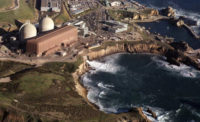The Tennessee Valley Authority should implement a groundwater protection plan to minimize the degradation of aquifers near its coal-fired plants, the Environmental Integrity Project says in a Nov. 6 report. The group credited the federal power producer for its decision to phase out ash ponds and replace them with landfills, which TVA did after about 5.4 million cu yd of wet ash from the 1,456-MW Kingston, Tenn., plant flowed over about 300 acres and into the Emory River in 2008, when a retaining wall collapsed. Several weeks later, TVA had a second, smaller spill in Alabama that sent water and gypsum into a nearby creek.
TVA's ash ponds and landfills have contaminated groundwater under and around all 11 of its coal-fired powerplants. In some cases, pollution drains into nearby rivers and streams, the environmental group said. It called the problem chronic and persistent.
The group's report is based on TVA's own monitoring of sites, says a TVA spokesman. TVA is monitoring the sites as required by regulators and remediates any problems, he says. Environmentalists say there are no cleanup plans in place.
Manganese concentrations in some monitoring wells were found to be 700 times above health limits for lifetime exposure; arsenic levels in one TVA monitoring well was nearly eight times above the U.S. standard. Much of the pollution is slowly moving toward local rivers, the report says. TVA has an extensive network of monitoring wells at some plants but does not regularly collect data for some key pollutants in coal ash, the report contends. The group says TVA should resume monitoring contaminated wells and complete a full characterization of ongoing effects from coal-ash disposal. It also seeks a cleanup plan for its coal-fired fleet with a public review as well as the return of contaminated aquifers beneath TVA ash ponds and landfills "to background condition in a reasonable amount of time."




Post a comment to this article
Report Abusive Comment